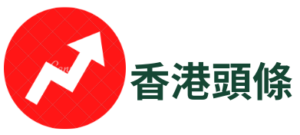Equities in Asia and Europe were mixed on Tuesday as investors awaited the latest developments in Donald Trump’s trade war.
With Wall Street closed for a holiday, there were few major catalysts to drive business, though investors remain on their toes after the US president’s threat of 50 percent tariffs on European Union goods and subsequent delay reviving volatility.
In Hong Kong, the benchmark Hang Seng Index ended trading for the day up 99.66 points, or 0.43 per cent, to close at 23,381.99.
The Hang Seng China Enterprises Index rose 0.38 per cent to end at 8,469.97 while the Hang Seng Tech Index rose 0.48 per cent to end at 5,182.60.
China stocks ended lower, with losses in the auto and gold mining sectors outweighing gains in healthcare shares
The benchmark Shanghai Composite Index ended down 0.18 per cent at 3,340.69.
The Shenzhen Component Index closed 0.61 per cent lower at 10,029.11.
The ChiNext Index, tracking China’s Nasdaq-style board of growth enterprises, lost 0.68 per cent to close at 1,991.64.
Chinese automakers extended losses in the wake of reports that Commerce Ministry will meet with industry bodies and automakers, including BYD and Dongfeng Motor, to discuss the emerging trend of sales of “used cars” that were never driven.
The onshore Automobile Index fell more than 1 per cent.
Shenzhen-listed BYD shares dropped 2.3 per cent, after tumbling 6 per cent on Monday.
The spotlight will be on the auto sector this week after price competition intensified among electric car makers and an industry executive warned the sector was in an unhealthy state.
Also dragging onshore performance were shares of companies in the non-ferrous metals segment, which lost nearly 2 per cent.
Zijin Mining’s stock listed onshore dropped 3.7 per cent after the company disclosed it wanted to spin off its overseas gold mines into a separate listing in Hong Kong.
Both onshore- and offshore-traded healthcare stocks jumped, with Sunshine Guojian Pharmaceutical Shanghai soaring 15.3 per cent and CSPC Pharma gaining 5.8 per cent.
China’s industrial profits picked up pace in April, official data showed, signalling economic resilience in the face of trade tensions with the United States and lingering deflationary pressures at home.
Meituan opened sharply down, but closed 2 per cent higher after the leading delivery group reported a 46 per cent rise in first-quarter net profit.
However, it warned that second quarter would likely be hit by increased competition in the so-called “instant retail” segment.
Tokyo stocks extended gains as a weakening yen triggered strong buying in Nikkei futures.
The benchmark Nikkei stock index, the 225-issue Nikkei Stock Average, closed at 37,724.11, up 192.58 points, or 0.51 percent.
In afternoon trading in the foreign exchange market, the yen slipped to the 143 range against the US dollar.
Export-related stocks, including Toyota, which had been weak in the morning session, rebounded on improved profit expectations due to the weaker yen.
The broader Topix index also rose for a third day, gaining 17.58 points, or 0.64 percent, to close at 2,769.49. (Reuters/AFP/Xinhua)
